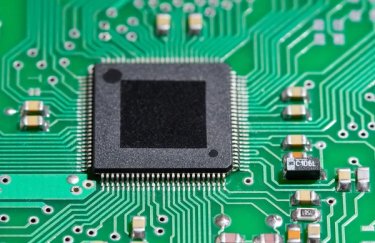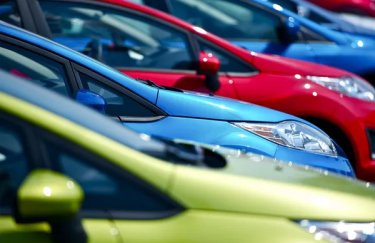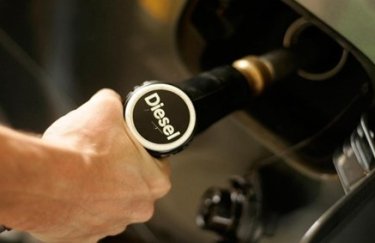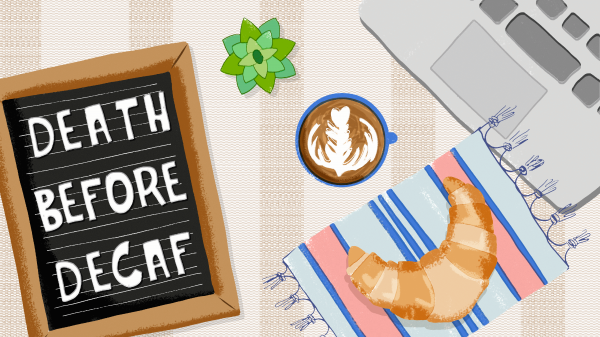
Why do we hate decaf so much?
Decaf coffee’s terrible reputation is outdated. So why does it persist?
By
Rebecca Jennings@rebexxxxa
Mar 7, 2019, 8:00am EST
Share
Tweet
Share
Share
Why do we hate decaf so much?
tweet
share
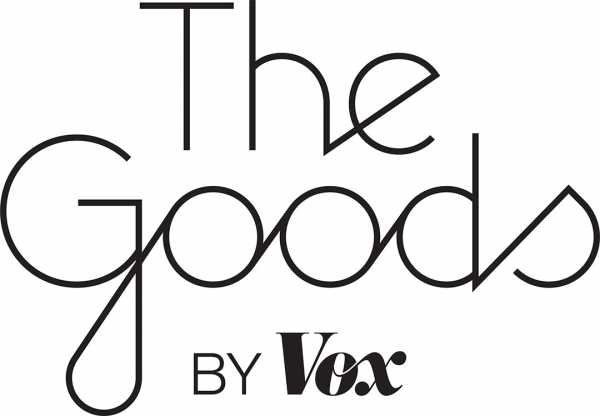
“Decaffeinated coffee is like a hooker who only wants to cuddle.” Like many quotes on Instagram, this one is styled in a cutesy sans serif font and has the beigeness of a black-and-white image that’s been reposted and refiltered dozens of times over. Below it are the hashtags #caffeineaddict, #workingmomlife, and the clincher, #deathbeforedecaf.
It’s on the more offensive end of a spectrum made up of thousands of coffee-related quotes on Instagram that imply the poster would rather literally die before drinking a morning beverage that didn’t contain caffeine. They range from the cutesy (“But first, coffee”) to the self-deprecating (“I’m sorry for what I said before I had my coffee”) to the vaguely threatening (“I drink coffee for your protection” or “Coffee: a magical substance that turns ‘leave me alone or die’ into ‘good morning, honey!’”).
There are coffee memes for moms, coffee memes for CrossFitters, for entrepreneurs, even ones for multi-level marketers. Scrolling through coffee hashtags on Instagram, you begin to suspect that the entire world is being held together with a single substance, that America actually does run on Dunkin’.
And it does, to an extent — 64 percent of Americans drink coffee every day, according to the National Coffee Association, and 87 percent regularly consume caffeine. People love coffee; we love it so much that many of us are using it as a stand-in for an online persona, or at least implying it’s the only reason we get anything done.
Perhaps that’s true. Caffeine, of course, is a stimulant; it makes us feel more present, more positive, and more awake. But caffeine is still a drug, an addictive one, and these are scary words. And in an era where scary-sounding words are anathema to what’s considered “healthy” eating, and where the disavowal of scary-sounding substances is the bedrock of the modern dieting industry, the stubborn ubiquity of caffeine is curious.
So where is the caffeine backlash? Where are the adorable cafés that proudly label themselves as caffeine-free, with all the millennial-baiting accouterments but minus the addictive stimulant? Where are the startups clamoring to sell the next cool decaf coffee brand? Where are the Instagram accounts documenting gorgeous, “natural,” caffeine-less lifestyles? People kick caffeine addictions all the time. But maybe the more difficult addiction to kick is the thing it represents.
Within the past decade or so, the US has become far more accommodating to people with all kinds of food sensitivities and diet regimens. Veganism has elevated itself from a relatively fringe ideology to so completely mainstream that one of the most famous burgers in the country is made out of wheat and potatoes. Dairy-free milk is now a $2 billion industry, with sales having risen 61 percent between 2012 and 2018 (there was even a much-fussed-over oat milk shortage in the summer of 2018). Despite the fact that less than one percent of people have celiac disease, in 2013 nearly a third of Americans said they were trying to avoid gluten thanks to the influence of marketing and diet trends.
Even chain restaurants are embracing restrictive diets: Chipotle recently began offering special bowls for adherents of keto, paleo, and Whole30 diets, the latter of which is so militant that it bans all forms of dairy, grains, sugar, alcohol, and legumes — but not coffee.
Meanwhile, the world has not gotten even remotely friendlier to the caffeine intolerant. It can still be difficult to find a decaf option in coffee shops that aren’t one of the major chains, and caffeine labeling on products remains largely unregulated and incoherent.
The desire for a caffeine backlash is less of a demand — because as a person who can no longer tolerate caffeine, I do not actually want there to be decaf influencers, they sound insufferable — than a curiosity. Caffeine has all the elements required to spark a backlash in the year 2019: The vast majority of us regularly drink it, which is why removing it from one’s diet can demonstrate a monk-like ability to refuse indulgences (which is pretty much what all of wellness culture is based around).
And the benefits of eliminating caffeine are not exactly secret: Many people experience better sleep, fewer anxiety symptoms, less nausea, and higher energy. Sure, for most, cutting caffeine alone won’t change one’s overall life or health that much, but neither will most diets.
Most research today, however, shows that caffeine is basically fine, and might even be sort of good for you: Small studies have demonstrated that at low doses, or about as much caffeine in one or two cups of coffee, improves alertness and mental performance, particularly in people who are tired, that it makes us more supportive in social situations, and reduces the risk of workplace accidents. Though caffeine isn’t great for people on the anxious end of the spectrum, for tired folks or those who fall more on the depressive side, the effects can be positive.
Which is why talking about the “dangers of caffeine” can make one seem hilariously puritanical, and risks drawing comparisons to that one very dorky episode of Saved By the Bell where Jessie dramatically overdoses on caffeine pills (the executive producer later said it was originally supposed to be speed, which would have made a lot more sense).
Whether caffeine is or isn’t actually good for you isn’t actually the point. The point is that if the wild success of the largely pseudoscientific lifestyle brand Goop tells us anything, the rule goes that because caffeine sometimes has negative effects and isn’t tolerated by some people, by now, there should be a full-blown attack against Big Caffeine.
There isn’t.
I don’t actually blame the #deathbeforedecaf folks for their extreme dedication. I was one of them once, before a hastily guzzled single Starbucks Doubleshot Espresso preceded my first panic attack, an anxiety disorder, and an inability to drink caffeine without experiencing terrifying heart palpitations that lasts to this day.
Those first two things were very bad, obviously! But it was the latter whose life-altering effects were the most surprising: In the span of a few minutes, coffee went from the joyous, hot thing that got me through the days to a poison that everybody else was immune to.
#Deathbeforedecaf, however, is not really about a love of coffee. An Instagram quote worshipping coffee demonstrates something more performative: that the poster is rising and grinding; they’re hustling; they’re putting their hair in a messy bun and handling it. They’re making Mondays their bitch. All of this may be perfectly true, but like everything else on Instagram, there is subtext: “I drink coffee because I am very, very busy.”
Busyness is a particularly desirable quality to have in 2019. There are now multiple names for it: Depending on how you feel, it’s either hustle culture or it’s “millennial burnout” or “workism.” In a recent New York Times piece, writer Erin Griffith described performative hustling as “obsessed with striving, relentlessly positive, devoid of humor, and — once you notice it — impossible to escape.”
The Atlantic’s Derek Thompson writes that social media has amplified the pressure to craft a successful image, and because a growing number of white collar jobs produce invisible results (as opposed, to, say, construction), “today’s workers turn to social media to make manifest their accomplishments. Many of them spend hours crafting a separate reality of stress-free smiles, postcard vistas, and Edison-lightbulbed working spaces.” Also often present in such Instagram posts: coffee.
There might be a gloss of self-deprecation, e.g. “I literally can’t function without coffee,” but a coffee quote on Instagram is generally kind of a flex, one that implies that people are counting on you to be quick, sharp, and ready for anything. It’s less to do with the actual drink than the drug: It’s the caffeine that gives mommy her go-go juice, not the coffee. It’s not “death before tea,” it’s “death before decaf.”
An Instagram quote worshipping coffee demonstrates something more performative: that the poster is rising and grinding; they’re hustling; they’re putting their hair in a messy bun and handling it. They’re making Mondays their bitch.
In part, this might be why decaf is so maligned: It has all the bitterness and blandness of coffee, and, crucially, none of the implications that the drinker is here to hustle. If decaf is for old folks at diners — a reputation that has some cause; many seniors are on medications that react poorly with caffeine — then caffeinated beverages are for the young, virile, and productive.
But there is an equally vocal subset of coffee drinkers who are actually here for the coffee, yet who despise decaf just as much: coffee snobs. Murray Carpenter, the author of the book Caffeinated: How Our Daily Habit Helps, Hurts, and Hooks Us, says the rise of the coffee snob is part of the relatively newish, generational interest in fancified versions of vices like craft beer and whiskey. “I’m in my mid-50s. We were drinking Budweiser; we didn’t have a million beers to choose from and if you went out to get coffee, it was probably Maxwell House. [Now] people are more interested in high-quality foods and beverages that are produced on a smaller scale in a way that they understand.”
For many snootier coffee drinkers, decaf barely counts as coffee at all. But Carpenter says that’s based on an outdated assumption: “Some of [decaf’s poor reputation] is a hangover from the fact that 20 or 30 years ago, people simply weren’t producing as much good coffee as they do now, and decaf was the less good version of that not very good coffee.” These days there are good decaf blends, although you probably won’t find them at Starbucks, or even your local café, or even maybe your grocery store. Why? It’s expensive.
This part gets a little science-y, because to decaffeinate coffee beans is to conduct a rather complicated chemical process. The short version is that the vast majority of decaf coffee is made from soaking coffee beans when they are still green in a solvent, typically methylene chloride or ethyl acetate. These are not particularly gentle chemicals; the former can be used as a paint stripper or degreaser; the latter is often found in nail polish removers, which furthers the reputation of decaf coffee as “less natural” or worse.
In part, this might be why decaf is so maligned: It has all the bitterness and blandness of coffee, and, crucially, none of the implications that the drinker is here to hustle
There are other ways to decaffeinate coffee, one of which involves blasting liquid carbon dioxide into coffee beans soaked in water, which then draws out the caffeine. But the “purest” way to decaffeinate coffee is the Swiss Water process, in which the only chemical used is H2O. The result in both cases: high-quality, albeit more expensive, decaf.
Guy Wilmot, a veteran coffee importer in West Sussex, England, began packaging and selling Swiss Water-treated coffee online in 2015 after developing a creeping intolerance to late-in-the-day caffeine and a lack of decent available options. His company, Decadent Decaf, has all the markings of a cool coffee brand: minimalist branding (Wilmot told his designer he didn’t want it to be “fuddy duddy”) and smart marketing: With just a few hundred bucks a month spent on Google AdWords and Amazon, he’s managed to grow the company between 50 to 100 percent every year and made about a quarter million pounds in online revenue in the last year.
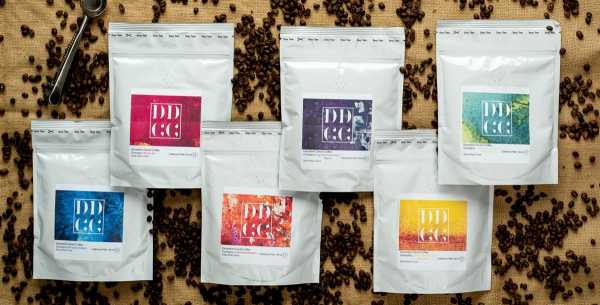
But despite the high-quality product and the fact that it comes in cute containers, his customers aren’t artisanal coffee houses (they say it’s too pricey), nor cool young people. Like most decaf consumers, they’re older, usually at least 45 and up. This isn’t necessarily a problem for the business, but he still faces a stigma in the industry. “[Decaf] is a bit embarrassing in the coffee world,” he says. “When I do tastings at, say, the London Coffee Festival, you kind of fear the tattoo brigade, going, ‘Oh, I’m not into that.’”
Wilmot is just as curious as I am as to why decaf hasn’t had its moment, though he does have a theory. “I think basically no one has done a good enough marketing job,” he says. “Look at teas: Herbal teas are rocketing. They’ve done a lot better job. I really think someone in America should do it. Make some money. Come on!”
Wilmot makes a solid point. The products that have gone the most viral in the past view years — CBD oil, vapes, gravity blankets, fidget spinners — almost exclusively exist to calm us down. Considering that fact, coffee minus the caffeine feels like a bizarre missed opportunity.
For a period of time in the mid-2000s, Dr. Richard Church was the caffeine guy. When CBS conducted a special on the dangers of “caffeine intoxication,” they brought on Church, who would explain that no, chasing black market Adderall with six Red Bulls and a No-Doz to cram for a test and then getting hammered on Four Loko on the weekends was not, in fact, healthy.
Church is an emergency toxicologist at the University of Massachusetts who treats cases of substance overdose — a toddler who accidentally drinks his dad’s cup of coffee, for instance. But he also has to respond to trends in marketing. While a decade ago, the public concern was focused on the dangers of over-caffeination, since then there’s been newer young-person habits to worry about.
“Society moved on a little bit from [caffeinated beverages], and there are other, sexier things to get into,” he explains. “Vaping has become mainstream; marijuana has become super mainstream now that it’s legalized. It’s sort of like, ‘Why drink energy drinks when I can do one of these other fun things?’”
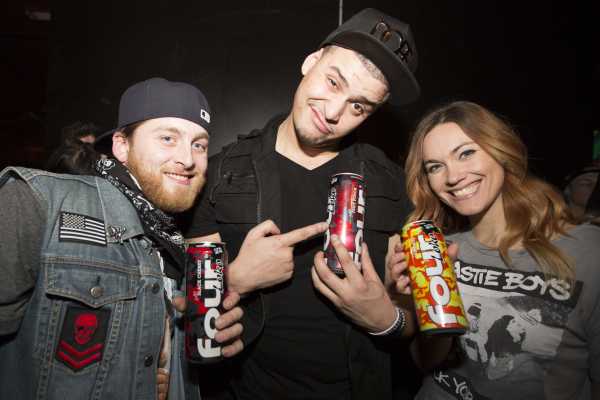
Vaping became explosively popular among teens because of massive marketing campaigns — so did Red Bull, for instance. Which means that for decaf to have its day, a company first needs to exploit the opportunity.
Remember when I complained about how there weren’t any cute caffeine-free coffee shops? That was sort of a lie. There was one. In 2015, Swiss Water, the company that patented the Swiss Water process and works with many different roasters, opened pop-up shop “experiences” in New York and Los Angeles called “The Art of Coffee Without Caffeine.” There were brewing and cupping demos, live music, and local art for sale, all in the goal to “introduce and remind New Yorkers to enjoy the coffee they love, just without the caffeine,” as the brand manager told NYU Local at the time.
It did not go great.
“Opening of all-decaf coffee shop in Manhattan met with horror, outrage,” declared the Washington Post. Gothamist called its banner product “fake coffee,” while Eater dubbed the pop-up “the first sign of the cultural apocalypse.” Jezebel went with, “Try Not to Scream: A Caffeine-Free Coffee Shop Has Just Opened.”
Needless to say, the pop-up did not become permanent. But despite negative reactions in the press and on social media, the company maintains it was overall a success for those who actually visited. Customers were, a spokesperson for Swiss Water wrote in a statement, “delighted to experience such delicious decaf and value learning more about both their options for great coffee without caffeine and the availability of our chemical free process.”
Unfortunately for Swiss Water, and for me, the culture has not dramatically reversed its opinion on decaf coffee within the last four years. There is, as of yet, no war against the amorphous threat to nobody known as Big Caffeine.
Which is fine! The reasons are clear: Decaf still faces an enormous stigma both within the coffee industry and out to the working moms on Instagram. It’s expensive to produce, and with the majority of Americans harboring at least somewhat of a caffeine addiction, it isn’t likely that we’ll be trading it in for the drugless version en masse anytime soon.
But I have to assume, and not just because I can no longer tolerate them, that the more negative aspects of caffeine’s effects — the anxiety, the racing heartbeat, the jitteriness, the nausea slowly curdling in your stomach — will for many people soon outweigh the good. Everything else that seems to happen in the world already gives us all of these things. And if it does, what use is caffeine anymore, really?
Drink decaf. I promise you: Death is much, much worse.
Sourse: vox.com
